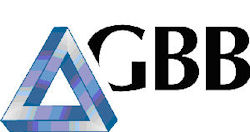Team:Groningen/Labwork/12 September 2013
From 2013.igem.org
Sebas
Claudio
The plates pSB1C3-S1-S5-S5 and pSB1C3-S2-S5-S5 showed thousands of colonies.Colony PCR was performed on 4 colonies per plate using VF2 and VR primers (annealing temperature 58°C).
The samples were checked on agarose gel 0.8%.
Colony C from pSB1C3-S1-S5-S5 and colony B from pSB1C3-S2-S5-S5 were positive candidates and were inoculated in LB + Cm.
PCR was performed using S11 as template, S16-F and S16-R as primers (annealing temperature 63°C) and NEB High Fidelity TAQ.
The PCR product was purified.
pSB1C3-S16-S3, pSB1C3-S16-S9 were digested with SpeI and PstI.
S11 was digested with XbaI and PstI.
S5 (previously digested with XbaI and PstI) and S11 were ligated into pSB1C3-S16-S3 and pSB1C3-S16-S9, respectively.
Mirjam
Did a ligation of the silk plus signal sequences (made by Sander) to the registration backbone.Saw colonies on the plates of complete transformation of the ΔCheY mutant to our B. subtilis 168 strain.
Inne
Prepared the samples of biobrick BBa_k1085012 and BBa_k1085010 for sequencing. 4 samples were prepared.| Biobrick | Primer |
| BBa_k1085012 5 uL | VF2 5 uL |
| BBa_k1085012 5 uL | VR 5 uL |
| BBa_1085010 | VF2 5 u/L |
| BBa_1085010 | VR 5 u/L |
 "
"







